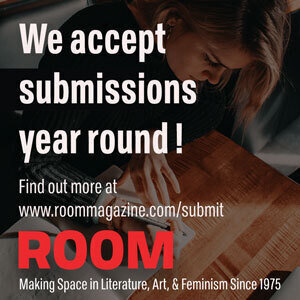A poem with two memories of Venezuela
The first time her hair was sunlight and it moved in loud wet rivulets and it warmed me and it darkened my eyebrows to be so close to her. She passed small beads of fruit into my mouth and my teeth became seeds and my blood became guava. My own hair became highways, knotted and tangled, and she patted my exhaust-fuming head to tell me I was beautiful. I was a child, squinting into how huge and how warm and how mine and not mine her body. The plane ride home was always about something unhitching and floating away. Always a sterilizing, dream-bleary goodbye. Arriving home with one less limb or finger, the buttons wiggled loose on their threads, the tongue resting slack against jangling teeth.
Later, when I became too busy for her, lines of age scored both our cheeks and skin spattered from the cloud-lust of storms. From great distances I spoke her name aloud, then less, then more, her gales up-throating a continent, scaling a continent like a stairwell to sweep a voice through the wind chime of my memory. She carved me out of distance, condensation, certain objects stowed in the closet in the room my grandmother would stay in when she’d come to visit. She carved me out of oil-slick waters, salt-encrusted rains, mud cascading over city hills becoming clay, carrying dust of human origins. She carved me out of pixelated images of street protests, socialist revolutions, grocery stores with barren shelves. She slid a tongue into my mouth and so I’ve made due with two. She taught me supple light, and forests lacing between coasts, and pregnant mammals braying on their haunches in the always-summer wind.
It’s hard to say what an immigrant is. A cluster of ants held in the palm, see how they circulate urgent on skin, see how they spiral, how their legs never stop moving. Certain children are prone to tip over the rock and upturn a whole city of ants, then track their escape routes.
It’s hard to say what an immigrant is. There is a place in you, fertile as soil but changeling as weather. There’s a place in you. It raised you and gave you the letters of too many languages; it gave you your tenderness, your distance, your rage.
What a child of an immigrant is. Thrice born, three sets of eyes. Belonging to no one. Carrying documents written with invisible ink. Speaking languages scavenged from cousins and radio hosts. Or else speaking the silence, that primary language of people who have been exactly everywhere and nowhere, excavated and learned by the gaps in between.
“A poem with two memories of Venezuela” is the winning poem in Minola Review’s inaugural Poetry Contest, as judged by Doyali Islam.
Mónica Gomery is a rabbi and poet, raised by her Venezuelan Jewish family in Boston and Caracas, and now living in Philadelphia. Her work explores queerness, diaspora, ancestry, theology, and cultivating courageous hearts. She is the author of Here is the Night and the Night on the Road (Cooper Dillon Books, 2018), and the chapbook Of Darkness and Tumbling (YesYes Books, 2017). She has been a Pushcart Prize nominee and a finalist in the Cutthroat Journal Joy Harjo Poetry Contest. You can currently see more of her writing in the journals Foglifter, Frontier, Plenitude Magazine, Pedestal Magazine, and forthcoming in Ninth Letter and Tinderbox.
Image by Chandler Cruttenden @chanphoto



